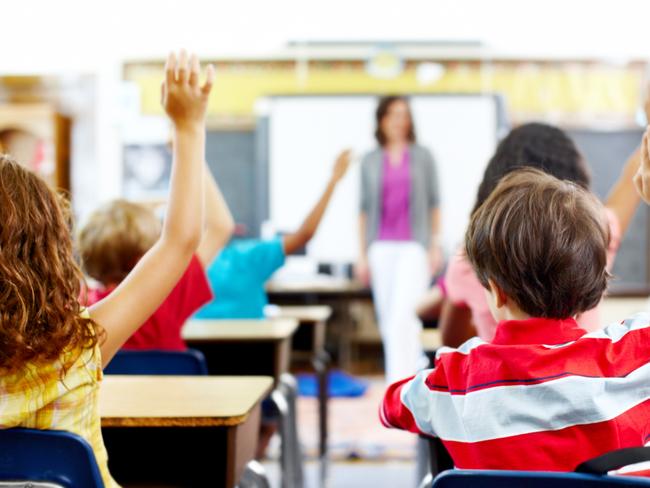Teaching degrees leave wannabe teachers strapped for cash
Droves of teaching students have considered dropping out over “debilitating” course fees and unpaid training requirements.
Education
Don't miss out on the headlines from Education. Followed categories will be added to My News.
Teaching students are borrowing money and dipping into their savings to cover “debilitating” costs of finishing their degrees.
New research by the Australian Education Union (AEU) has revealed 75 per cent of students studying teaching considered stopping their degree due to course fees and fear of financial stress.
Of that number, three in four students ended up deferring because they had to forego a salary to do unpaid school placements.
More than 60 per cent of those under financial stress reported having to use their savings to cover income lost during placement, and 22 per cent borrowed money from a relative or friend.
The survey of 141 Victorian teaching students comes as the state battles the teacher shortage gripping the nation.
AEU Victorian branch president Meredith Peace said it was crucial the Victorian and federal governments paid students to complete school placements or reimbursed them for lost wages.
“The completion rates for university and those studying initial teacher education (ITE) are a concern. This (financial stress) is clearly one of the things that are contributing to it,” she said.
Premier Daniel Andrews made the election promise to pay for the university courses of more than 10,000 nursing and midwifery students.
Graduate nurses and midwives were also promised a $5000 bonus if they signed on for two years in the public health system.
Ms Peace said teachers also needed more support.
“We’re losing people at every stage, whether they’re choosing not to go into teaching, or they’re dropping out of their teacher training course,” she said.
“This is about attracting people into courses and making them feel confident they’re going to be able to afford to live while they do the course.”

Jessica McGough, 25, said she was forced to rely on Centrelink payments to get through her secondary education degree.
“It was definitely debilitating. I remember breaking down crying … because we didn’t have any money,” she said.
“The stress was incredible before starting placement. It just puts you in the exact wrong headspace to be going into a learning experience.
A Victorian Department of Education spokesman said there were several employment programs that helped students financially during their studies.
“The government is investing $33.5m to expand the Innovative Initial Teacher Education program for a further three intakes, providing places for 1200 student teachers and reducing financial barriers to study,” he said.
The Teacher Rural pilot program will be launched next year to provide pre-service teachers in rural areas with free accommodation.
More than 1700 job listings for roles in state schools have been posted online in the past week alone, as federal Education Minister Jason Clare works with his state’s counterparts to drive more people into the profession and to maintain existing staff.
Victorian universities have installed targeted support for students during these “danger times” in a bid to retain as many new teachers as possible.





